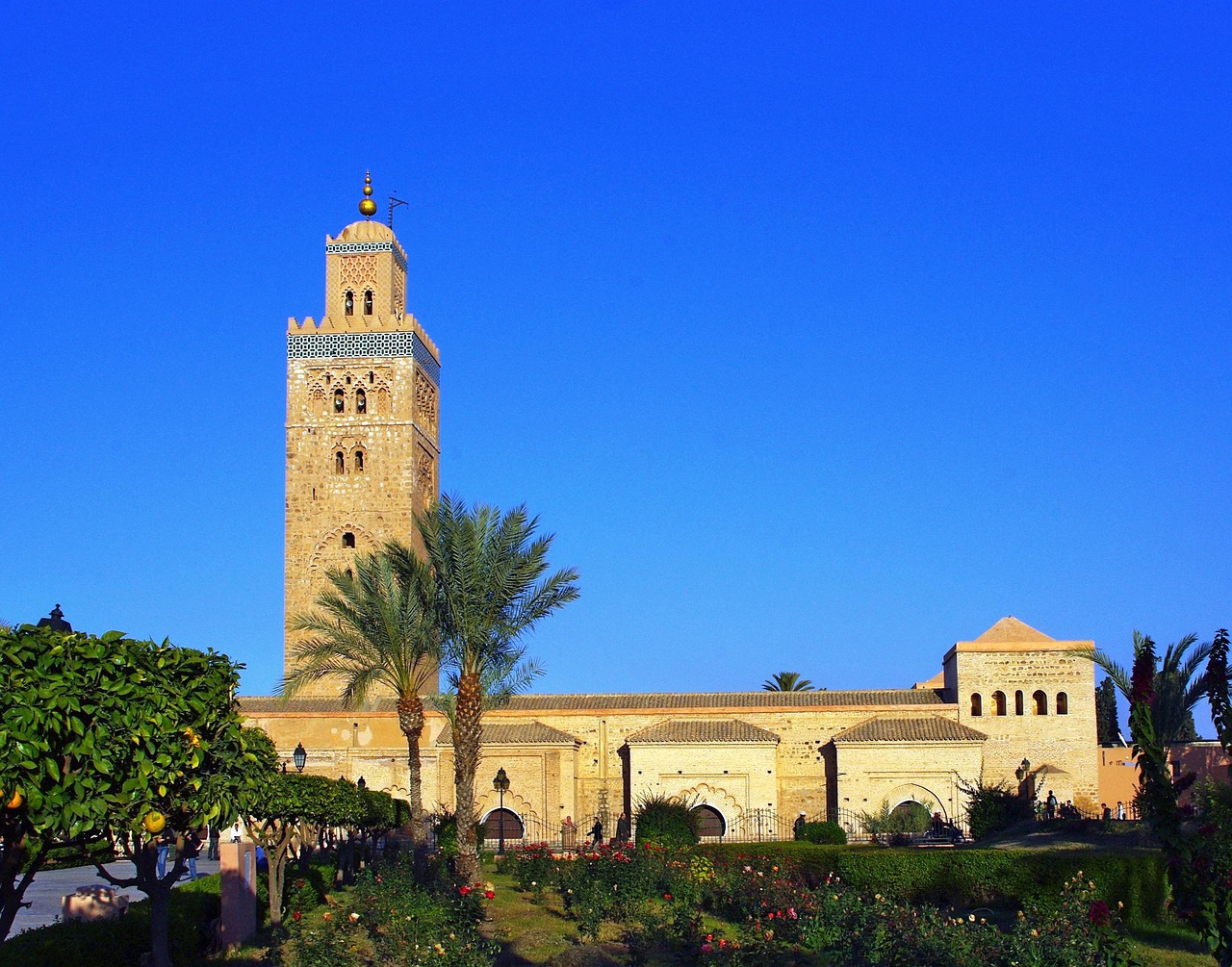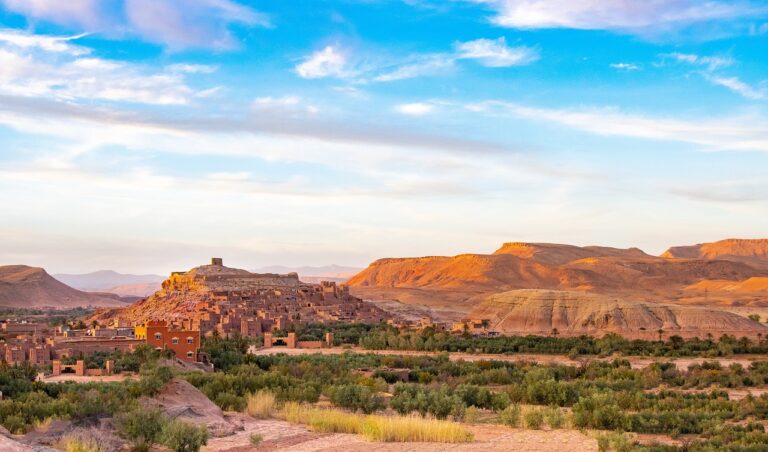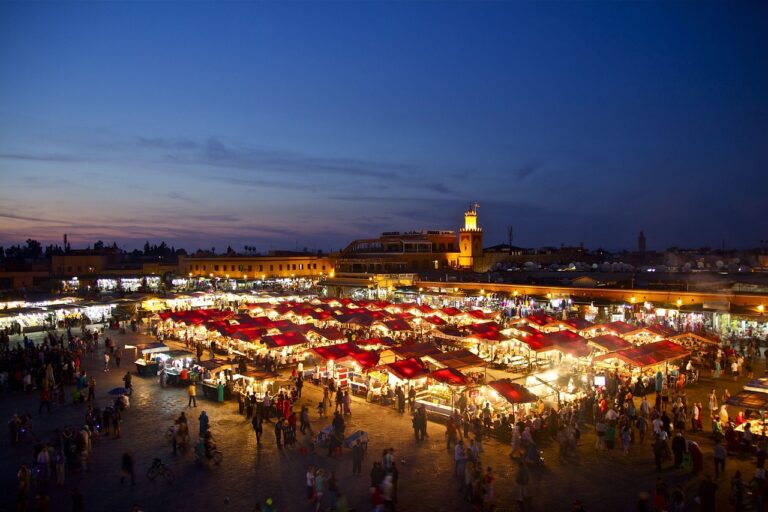2025 Ultimate Guide to Visit Morocco: Everything You Need to Know
Planning to visit Morocco? This enchanting North African kingdom offers an incredible blend of ancient traditions, stunning landscapes, and vibrant culture that captivates millions of travelers each year. From the bustling souks of Marrakech to the golden dunes of the Sahara Desert, Morocco promises an unforgettable adventure for every type of traveler.
This comprehensive guide covers everything you need to know to visit Morocco successfully, including top destinations, cultural insights, practical tips, and essential planning advice for your Moroccan journey.
Why Visit Morocco? Top Reasons to Choose This Magical Destination
Morocco stands out as one of the world’s most diverse and accessible exotic destinations. Here’s why millions choose to visit Morocco annually:
Rich Cultural Heritage
Morocco’s strategic location at the crossroads of Africa, Europe, and the Middle East has created a unique cultural tapestry. When you visit Morocco, you’ll experience a fascinating blend of Berber, Arab, and French influences reflected in architecture, cuisine, and daily life.
Diverse Landscapes
Few countries offer such geographic diversity in a compact area. Your Morocco visit can include snow-capped Atlas Mountains, endless Sahara dunes, Atlantic and Mediterranean coastlines, and lush oasis valleys.
Authentic Experiences
Unlike many tourist destinations, Morocco maintains its authentic character. Traditional crafts, ancient medinas, and time-honored customs provide genuine cultural immersion when you visit Morocco.
Accessibility and Safety
Morocco is one of Africa’s most tourist-friendly destinations, with excellent infrastructure and a well-developed tourism industry making it easy and safe to visit Morocco.
Top Destinations to Visit in Morocco
Marrakech: The Red City
Why Visit Marrakech: Marrakech tops most Morocco itineraries for good reason. This imperial city perfectly embodies Morocco’s exotic appeal with its famous Jemaa el-Fnaa square, stunning palaces, and vibrant souks.
Must-See Attractions:
- Jemaa el-Fnaa Square: The heart of Marrakech’s medina
- Koutoubia Mosque: Iconic 12th-century minaret
- Bahia Palace: Stunning example of Moroccan architecture
- Majorelle Garden: Botanical paradise created by Yves Saint Laurent
- Saadian Tombs: Historic royal burial ground
Best Areas to Stay:
- Medina: Authentic riads within walking distance of attractions
- Gueliz: Modern district with upscale hotels and restaurants
- Hivernage: Luxury resort area near the medina
Fez: Morocco’s Cultural Capital
When you visit Morocco, Fez offers the most authentic medieval experience in the country. This UNESCO World Heritage site houses the world’s oldest continuously operating university and the best-preserved medieval city in the Arab world.
Highlights:
- Fes el-Bali: The ancient walled city
- Al-Qarawiyyin University: Founded in 859 AD
- Chouara Tannery: Traditional leather-making process
- Bou Inania Madrasa: Architectural masterpiece
- Mellah: Historic Jewish quarter
Casablanca: Modern Morocco
Morocco’s economic capital showcases the country’s modern face while maintaining historical significance.
Key Attractions:
- Hassan II Mosque: One of the world’s largest mosques
- Rick’s Café: Inspired by the classic film
- Royal Palace: Beautiful architecture (exterior only)
- Corniche: Seaside promenade with beaches and restaurants
Chefchaouen: The Blue Pearl
This picturesque mountain town is Instagram-famous for its blue-painted buildings and relaxed atmosphere.
Why Visit:
- Stunning photography opportunities
- Peaceful mountain setting
- Authentic Berber culture
- Gateway to Rif Mountains hiking
Sahara Desert: Ultimate Adventure
No Morocco visit is complete without experiencing the Sahara Desert. The most popular access points are:
Merzouga (Erg Chebbi Dunes):
- Closest to major tourist routes
- Best infrastructure for desert camps
- Spectacular sunrise and sunset views
Zagora:
- Shorter journey from Marrakech
- Good for day trips or short stays
- Less dramatic dunes but still beautiful
Essaouira: Coastal Charm
This UNESCO-listed coastal city offers a perfect blend of beach relaxation and cultural exploration.
Attractions:
- Well-preserved Portuguese fortifications
- Vibrant fishing port
- Excellent windsurfing and kitesurfing
- Relaxed, artistic atmosphere
Morocco Travel Essentials: Planning Your Visit
Visa Requirements for Morocco
Visa-Free Entry: Citizens of many countries can visit Morocco without a visa for up to 90 days, including:
- United States and Canada
- European Union countries
- Australia and New Zealand
- Many other countries
Entry Requirements:
- Passport valid for at least 6 months
- Return or onward ticket
- Proof of accommodation (hotel booking)
- Sufficient funds for your stay
Best Time to Visit Morocco
Optimal Seasons:
- Spring (March-May): Perfect weather, fewer crowds
- Fall (September-November): Ideal conditions, peak season
- Winter (December-February): Great for desert, cooler temperatures
- Summer (June-August): Best for coastal areas, hot inland
Morocco Currency and Money Matters
Currency: Moroccan Dirham (MAD) Exchange Rate: Approximately 10 MAD = 1 USD (rates vary)
Money Tips:
- Exchange money at banks or official bureaus
- ATMs widely available in cities
- Credit cards accepted in tourist areas
- Keep cash for souks and small vendors
- Bargaining is expected in markets
Language in Morocco
Official Languages: Arabic and Berber (Amazigh) Widely Spoken: French, Spanish in northern regions Tourist Areas: English increasingly common
Useful Arabic Phrases:
- Salam aleikum (Peace be upon you) – Hello
- Shukran (Thank you)
- Afak (Please)
- La shukran (No, thank you)
- Bikam hada? (How much is this?)
Morocco Culture and Customs: What to Know Before You Visit
Religious Considerations
Morocco is a Muslim-majority country, and respecting local customs enhances your visit experience.
Dress Code:
- For Everyone: Cover shoulders and knees, especially at religious sites
- For Women: Consider loose-fitting clothing and carrying a scarf
- For Men: Long pants preferred in religious areas
- Beachwear: Appropriate only at beaches and pools
Moroccan Hospitality and Etiquette
Social Customs:
- Moroccans are incredibly hospitable
- Accept tea when offered – it’s a sign of respect
- Use your right hand for eating and greetings
- Remove shoes when entering homes
- Ask permission before photographing people
Ramadan Considerations
If you visit Morocco during Ramadan, be respectful of fasting practices:
- Avoid eating/drinking in public during daylight
- Restaurants may have limited hours
- Evening iftar meals offer cultural experiences
- Many attractions maintain normal hours
What to Do in Morocco: Top Activities and Experiences
Desert Adventures
Camel Trekking: Experience the Sahara the traditional way with guided camel tours ranging from sunset trips to multi-day expeditions.
Desert Camping: Spend nights under spectacular desert stars in traditional Berber camps offering authentic experiences with modern comfort levels.
4WD Desert Tours: Explore remote dunes and oases with experienced local guides who know hidden gems off the beaten path.
Cultural Experiences
Cooking Classes: Learn to prepare tagines, couscous, and pastries with local families or professional chefs in major cities.
Hammam (Traditional Bath): Experience this centuries-old cleansing ritual in authentic public hammams or luxury spa versions.
Souk Shopping: Navigate bustling markets filled with handcrafted goods, spices, textiles, and unique souvenirs while practicing bargaining skills.
Adventure Activities
Atlas Mountains Trekking: Hike through Berber villages, valleys, and peaks including Mount Toubkal, North Africa’s highest summit.
Surfing and Water Sports: Morocco’s Atlantic coast offers excellent surfing, particularly around Taghazout, Essaouira, and Agadir.
Rock Climbing: The Todra Gorge and Dades Valley provide world-class climbing opportunities for all skill levels.
Morocco Food Guide: Culinary Delights to Try
Must-Try Moroccan Dishes
Tagine: Morocco’s signature slow-cooked stew comes in countless varieties with meat, vegetables, or fruits, cooked in distinctive cone-shaped clay pots.
Couscous: Typically served on Fridays, this steamed semolina dish accompanies vegetables, meat, or fish in a flavorful broth.
Pastilla (B’stilla): Sweet and savory pastry traditionally filled with pigeon (now often chicken), eggs, almonds, and aromatic spices.
Harira: Hearty soup made with tomatoes, lentils, chickpeas, and meat, especially popular during Ramadan.
Moroccan Mint Tea: The national drink served throughout the day in small glasses, prepared with fresh mint, sugar, and green tea.
Street Food Adventures
Moroccan Breakfast: Start your day with fresh bread, honey, olive oil, olives, and cheese from local bakeries.
Grilled Meats: Try kefta (spiced meatballs), merguez sausages, and grilled chicken from street vendors.
Fresh Juices: Orange juice stalls offer freshly squeezed juices, particularly famous in Marrakech’s main square.
Accommodation Options When You Visit Morocco
Riads: Authentic Moroccan Experience
Traditional houses built around central courtyards, now converted into boutique accommodations offering authentic Moroccan hospitality and design.
Advantages:
- Authentic architecture and décor
- Personal service and local insights
- Central medina locations
- Unique cultural experience
Considerations:
- Can be difficult to find initially
- May lack modern amenities
- Not suitable for those needing wheelchair access
Hotels: Modern Comfort
International and local hotel chains provide familiar standards with Moroccan touches.
Options:
- Luxury: Four Seasons, La Mamounia, Royal Mansour
- Mid-Range: Kenzi Hotels, Atlas Hotels
- Budget: Local hotels and pensions
Desert Camps: Unique Experience
Spend nights in the Sahara Desert in traditional Berber-style tents with varying comfort levels.
Types:
- Luxury Camps: Private bathrooms, comfortable beds, gourmet meals
- Standard Camps: Shared facilities, basic beds, traditional meals
- Wild Camping: Ultimate adventure with minimal facilities
Transportation in Morocco: Getting Around
Domestic Flights
Royal Air Maroc connects major cities quickly, ideal for covering long distances when time is limited.
Popular Routes:
- Casablanca to Marrakech (1 hour)
- Casablanca to Fez (1.5 hours)
- Marrakech to Essaouira (charter flights available)
Train Travel
ONCF (Morocco’s national railway) offers comfortable, punctual service between major cities.
Key Routes:
- Casablanca-Rabat-Fez
- Casablanca-Marrakech
- New high-speed Al Boraq line (Casablanca-Tangier)
Bus Transportation
CTM and Supratours provide air-conditioned buses connecting cities and towns throughout Morocco.
Advantages:
- Affordable pricing
- Extensive network
- Comfortable for long journeys
- Reaches destinations trains don’t serve
Car Rental and Driving
Renting a car offers maximum flexibility to explore Morocco at your own pace.
Considerations:
- International driving permit required
- Roads generally in good condition
- Mountain and desert driving requires experience
- Parking can be challenging in medinas
Local Transportation
Grand Taxis: Shared taxis for intercity travel Petit Taxis: City taxis for urban transportation Urban Buses: Affordable local transportation in major cities
Morocco Safety Tips: Stay Safe During Your Visit
General Safety Guidelines
Morocco is generally very safe for tourists, but standard travel precautions apply:
Personal Safety:
- Keep copies of important documents
- Use hotel safes for valuables
- Stay aware of surroundings in crowded areas
- Trust instincts about situations and people
Health Precautions:
- Drink bottled or purified water
- Be cautious with street food initially
- Bring hand sanitizer
- Consider travel insurance
Common Tourist Situations
Souk Shopping:
- Expect persistent vendors
- Bargaining is normal and expected
- Don’t feel obligated to buy
- Agree on prices before services (photos, directions)
False Guides:
- Use official guides when possible
- Be polite but firm with unofficial guides
- Don’t feel obligated to accept help
Morocco Travel Budget: Cost Planning
Budget Categories
Budget Travel (per day):
- Accommodation: $15-30
- Food: $10-20
- Transportation: $5-15
- Activities: $10-25
- Total: $40-90 per day
Mid-Range Travel (per day):
- Accommodation: $50-120
- Food: $25-40
- Transportation: $15-30
- Activities: $25-50
- Total: $115-240 per day
Luxury Travel (per day):
- Accommodation: $200-500+
- Food: $50-100+
- Transportation: $50-100+
- Activities: $75-200+
- Total: $375-900+ per day
Money-Saving Tips
Accommodation:
- Book riads directly for better rates
- Consider staying outside medinas
- Travel during shoulder seasons
Food:
- Eat where locals eat
- Try fixed-price menus
- Shop in local markets
Transportation:
- Use public transport
- Share grand taxis
- Book activities directly with operators
Packing for Morocco: Essential Items
Clothing Essentials
Year-Round:
- Modest, comfortable clothing
- Comfortable walking shoes
- Sandals for hot weather
- Light scarf or shawl
- Hat and sunglasses
Seasonal Additions:
- Summer: Lightweight, breathable fabrics
- Winter: Warm layers for cold evenings
- Desert: Long sleeves for sun protection
Practical Items
Technology:
- Universal power adapter (European plugs)
- Portable charger/power bank
- Camera with extra batteries
- Phone with international plan
Health and Comfort:
- Sunscreen (high SPF)
- Hand sanitizer
- Basic first aid items
- Insect repellent
- Rehydration salts
Morocco Itinerary Ideas: Sample Trip Plans
Classic Morocco (10-14 Days)
Day 1-3: Marrakech
- Explore medina and souks
- Visit major palaces and gardens
- Day trip to Atlas Mountains
Day 4-6: Sahara Desert
- Drive through Atlas Mountains
- Camel trekking and desert camping
- Visit Todra Gorge and kasbahs
Day 7-9: Fez
- Explore ancient medina
- Visit traditional crafts workshops
- Day trip to Meknes and Volubilis
Day 10-12: Chefchaouen
- Relax in blue city atmosphere
- Hiking in Rif Mountains
- Photography opportunities
Day 13-14: Casablanca/Departure
- Visit Hassan II Mosque
- Final shopping and departure
Morocco Highlights (7-10 Days)
Shorter Version:
- 3 days Marrakech
- 2 days Sahara Desert
- 2-3 days Fez
- 1-2 days travel/departure
Coastal Morocco (7-14 Days)
Beach and Culture Combination:
- Casablanca (2 days)
- Rabat (1-2 days)
- Essaouira (3-4 days)
- Agadir (2-3 days)
- Marrakech (3-4 days)
Sustainable Tourism: Responsible Travel in Morocco
Supporting Local Communities
Choose Local:
- Stay in locally-owned riads and hotels
- Eat at family-run restaurants
- Buy crafts directly from artisans
- Use local guides and tour operators
Cultural Respect:
- Learn basic Arabic/French phrases
- Respect local customs and traditions
- Dress appropriately
- Ask permission before photographing people
Environmental Responsibility
Desert Conservation:
- Follow designated paths
- Don’t disturb wildlife
- Take only photos, leave only footprints
- Choose eco-friendly desert camps
Water Conservation:
- Morocco faces water scarcity issues
- Take shorter showers
- Reuse towels when possible
- Drink from reusable bottles
Conclusion: Your Morocco Adventure Awaits
Morocco offers an incredible diversity of experiences that cater to every type of traveler. Whether you’re seeking adventure in the Sahara Desert, cultural immersion in ancient medinas, relaxation on Atlantic beaches, or culinary discoveries in bustling markets, Morocco delivers unforgettable memories.
The key to a successful Morocco visit lies in proper planning, cultural sensitivity, and openness to new experiences. This enchanting kingdom rewards travelers who approach it with respect for local customs and genuine curiosity about its rich heritage.
From the moment you arrive until your departure, Morocco will challenge your perceptions, delight your senses, and leave you planning your return visit. The warmth of Moroccan hospitality, combined with the country’s stunning landscapes and fascinating culture, creates travel experiences that last a lifetime.
Start planning your Morocco adventure today, and prepare to discover why this North African gem captivates millions of visitors who come to explore its magic and leave as lifelong ambassadors of its beauty.
Frequently Asked Questions About Visiting Morocco
Q: Is Morocco safe for solo female travelers? A: Yes, Morocco is generally safe for solo female travelers who take standard precautions, dress modestly, and stay aware of their surroundings. Many women travel solo successfully throughout Morocco.
Q: Do I need vaccinations to visit Morocco? A: No special vaccinations are required for Morocco, but ensure routine vaccinations (MMR, Hepatitis A/B) are current. Consult your doctor for personalized advice.
Q: Can I drink alcohol in Morocco? A: Yes, alcohol is available in tourist areas, hotels, and licensed restaurants, though it’s not as widely available as in non-Muslim countries.
Q: What’s the best way to exchange money in Morocco? A: Exchange money at banks or official exchange bureaus for the best rates. ATMs are widely available in cities and tourist areas.
Q: How much should I tip in Morocco? A: Tipping is customary – 10-15% at restaurants, 10-20 dirhams for guides, small amounts for helpful services. In riads, tip the entire staff collectively.
Q: Is WiFi readily available in Morocco? A: Yes, most hotels, riads, cafes, and restaurants offer WiFi. Consider purchasing a local SIM card for constant connectivity while exploring.



